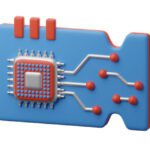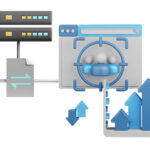Exploring Machine Learning Automation Support Frameworks
In the rapidly evolving world of technology, machine learning (ML) has emerged as a pivotal pillar in driving innovation across various industries. As more organizations recognize the value of ML in deriving insights from data, the need for streamlined processes and robust support frameworks to facilitate automation becomes paramount. This article delves into the essence of Machine Learning Automation Support Frameworks, their significance, components, and benefits for businesses.
What Are Machine Learning Automation Support Frameworks?
Machine Learning Automation Support Frameworks refer to structured methodologies and tools designed to simplify the development, deployment, and management of machine learning applications. These frameworks not only aid in automating repetitive tasks but also enhance the efficiency and effectiveness of ML workflows. By providing a consistent structure, they allow data scientists and engineers to focus on building models rather than getting bogged down in logistical challenges.
Key Components of ML Automation Support Frameworks
- Data Management and Preprocessing Tools: Effective ML relies heavily on quality data. Frameworks often include capabilities for data ingestion, cleaning, and preprocessing to ensure that the datasets used for training models are accurate and ready for analysis.
- Model Development Environment: Users need platforms where they can easily build and train models. This could involve integrated development environments (IDEs), libraries, and APIs that streamline model creation, allowing for faster experimentation.
- Automated Training and Hyperparameter Tuning: Automating the training process can save considerable time. Frameworks often incorporate automated hyperparameter tuning tools that help identify the best parameters for models without requiring manual intervention.
- Deployment and Monitoring Solutions: Once a model is trained, it needs to be deployed into production. Effective frameworks include tools for seamless deployment, as well as monitoring solutions to track model performance and ensure ongoing accuracy.
- Collaboration and Versioning Tools: As ML projects typically involve multiple team members, frameworks often provide features for collaboration, version control, and documentation to keep everyone aligned and informed about project changes.
Benefits of Using ML Automation Support Frameworks
- Increased Efficiency: Automation reduces the time spent on repetitive tasks, enabling teams to allocate resources to more critical areas such as model innovation and strategy.
- Improved Accuracy: With consistent processes and robust monitoring, models built using these frameworks tend to yield more reliable results, as any discrepancies can be detected and corrected promptly.
- Scalability: As businesses grow, their data and model complexity also increase. ML automation support frameworks enable seamless scaling, allowing organizations to handle larger datasets and more intricate models without a hitch.
- Fostering Collaboration: By promoting a structured approach to machine learning, these frameworks empower cross-functional teams to work together more effectively, leading to better outcomes and advanced insights.
- Cost Reduction: By increasing the efficiency of teams and enabling quicker deployments, companies can significantly reduce operational costs associated with model development and maintenance.
Conclusion
Machine Learning Automation Support Frameworks play a crucial role in the successful implementation of machine learning within organizations. They not only streamline the workflow from data acquisition to model deployment but also enhance collaboration, scalability, and overall accuracy. As the demand for machine learning continues to grow, investing in reliable automation support frameworks is more essential than ever for companies looking to harness the full potential of their data. Embracing these frameworks can lead to significant improvements in operational capabilities, giving businesses the competitive edge they need in an increasingly data-driven world.
For businesses venturing into machine learning or looking to optimize existing processes, adopting a robust automation support framework is a strategic move towards innovation and future success.


